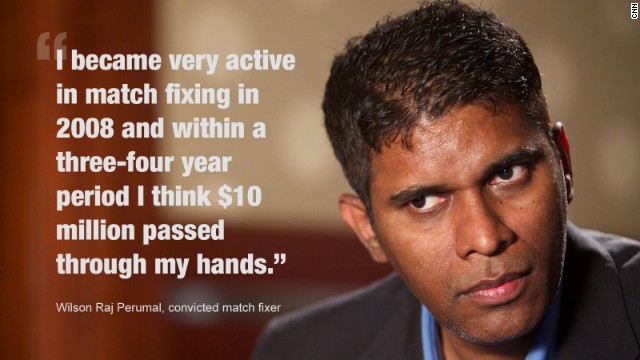Betting syndicates are ruthless and rich. Very rich. The amount of income they generate through match-fixing is many times greater than that of the vast majority of clubs earn worldwide.
Taking a closer look at how they operated in the past few years, I found huge similarities between their approach and many Romanian football investors.
I refer in particular to a couple of techniques that can be observed in known cases of corruption in the past decade.
These nefarious plots involve getting as closely involved with the game as possible, which is an extreme example meant stepping onto the pitch itself. Such methods resulted in a big step forward for match-fixers, and a huge step back for the game as a whole.
Let’s have a look.
Influence through corporate affiliation
Let’s have a look at how money can buy influence in European football. More often than not in the hustle, it can be found that Irving Rosenfeld was right in saying “To get millions, you need millions.”
The Singaporean Syndicate used UR Namur to fix matches in the 2008-2009 season. They had bought some shares with the sole intention of gaining influence in games without drawing attention.
Belgium has been targeted by match-fixers for more than 10 years. Ye Zheyun, a Chinese investor, had many attempts to buy a club in the country. After Lierse SK opened the door for him, he started fixing matches shamelessly. He then also took control of St Truiden and La Louvière.
Betfair (a UK betting exchange) have signalled to the Belgian FA some alarming notifications.
£400,000 was wagered on the match between St Truiden and La Louvière. £150,000 were also waged on St Truiden’s away game at Cercle Bruges.
Betfair say that matches in this division normally attract at most £10,000 worth of bets. Funny enough, the Belgian FA claimed they never received the letter sent by Betfair detailing these allegations.
It can certainly seem at times it can seem that the summer months are completely devoid of games, and Saturday’s start to become filled with trips to the garden centre and caravan glamping trips with the in-laws.
Betting syndicates on the other hand don’t take summer breaks, and an irregular game calendar which has matches over June and July was a good enough reason to attract mafia members to Finland. Wilson Raj Perumal, perhaps the most influential syndicate member after Dan Tan Seet Eng, also had a similar business going on at RoPS.
Eswaramoorthy Pillay was tasked with legitimately sponsoring clubs in his role as a Stanton Technologies executive. In more ways than one actually…
The Swiss league scandal revealed he had fixed matches of FC Sion and Chiasso in the 2008-2009 season.
Importing foreign players to facilitate match-fixing
Wilson Raj Perumal asked Zambian Zeddy Saileti to recruit players willing to fix matches. RoPS signed a few Zambians that were bribed through legit wages, a clever way of avoiding dirty money changing hands.
An almost identical case occurred in Australia. Southern Stars, a club playing in the Victorian Premier League, had signed a group of English players and a few other foreigners.
They were part of the criminal organisation led by that man again, Wilson Raj Perumal, and now goalkeeper Joe Woolley, defenders Reiss Noel and David Obaze and midfielder Nick McKoy – all former English lower league players – each face eight match-fixing related charges and up to ten years in jail.
They may not even end up seeing the inside of their cells, as all are living in fear for their lives with many rich and powerful figures eager to keep their own names out of the accused mouthes.
FIFPro Survey
In 2012 FIFPro published results from a survey in which nearly 3500 players from the first two divisions of Bulgaria, Croatia, Cyprus, Czech Republic, Greece, Hungary, Kazakhstan, Malta, Montenegro, Poland, Romania, Russia, Serbia, Slovenia and Ukraine were interviewed.
Three key questions and their polling results:
Have you ever been approached to consider fixing the result of a match?
11.9% said Yes
Are you aware of any match fixing that took place in your league?
23.6% said Yes
Does your club pay salary on time?
41.4% said No
The unquestionably worrying first two poll results are undoubtedly at least in part caused by the third. Certain countries have a bigger job on their hands than others, however.
34.3% of respondents in Kazakhstan have been approached to consider fixing the result of a match, whilst in Greece almost every third player (30.3%).
Almost half of the respondents from Russia (43.5%) are aware of match-fixing in their league.
The records show that a staggering 94% of football players in Montenegro do not get their salaries on time and two-thirds of the respondents from Greece (67.5%).
Er, what’s going on with the numbers in Romania?
From the 100 Romanian players who responded to the survey, not a single one admitted he was contacted for fixing matches. Moreover, not a single player was aware of match-fixing in their league.
This, at a time when only 8 clubs in the Romanian top tier were paying wages on time (or even close to on time), indicates that either Romanian footballers are completely oblivious to their surroundings or a serious coverup is occurring.
After this survey FIFPro also published this article an article entitled: ‘Be careful with signing with a Romanian club.’
They say: “Most Romanian professional football clubs face huge financial problems. Clubs from the country’s First, Second and Third Division are in trouble with their finances. The majority of the clubs have problems with paying the footballers their salaries.”
What they don’t mention is that there are likely to be other means of making a quick buck for a football in the country.




